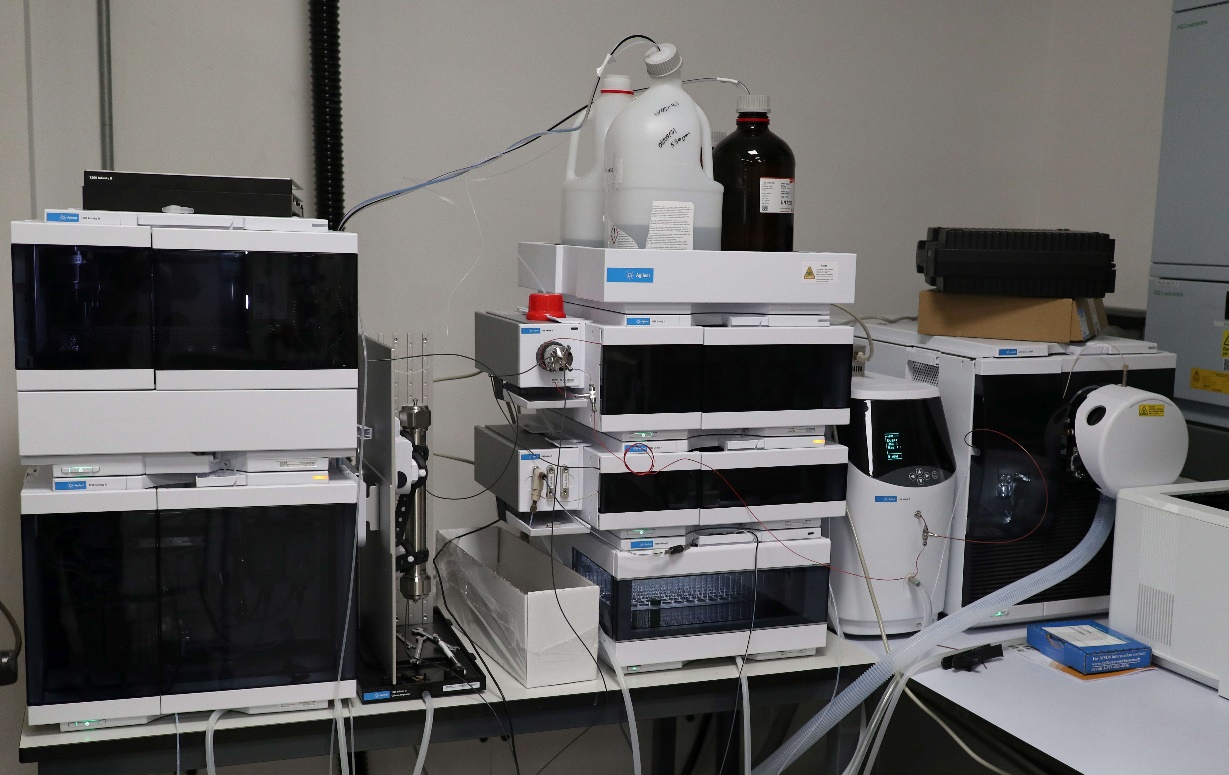Research facilities
The School of Chemical and Physical Sciences at Keele is home to a suite of state-of-the-art experimental and analytical instrumentation. Items of major research infrastructure based in the Lennard-Jones Laboratories are listed below. For access or to discuss sample requirements please email the named contact person for each instrument.
In addition, the Central Sciences Laboratories at Keele house a range of spectroscopic instruments including UV-Visible and fluorescence spectrophotometers, infrared and Raman spectrometers and GC-MS facilities.
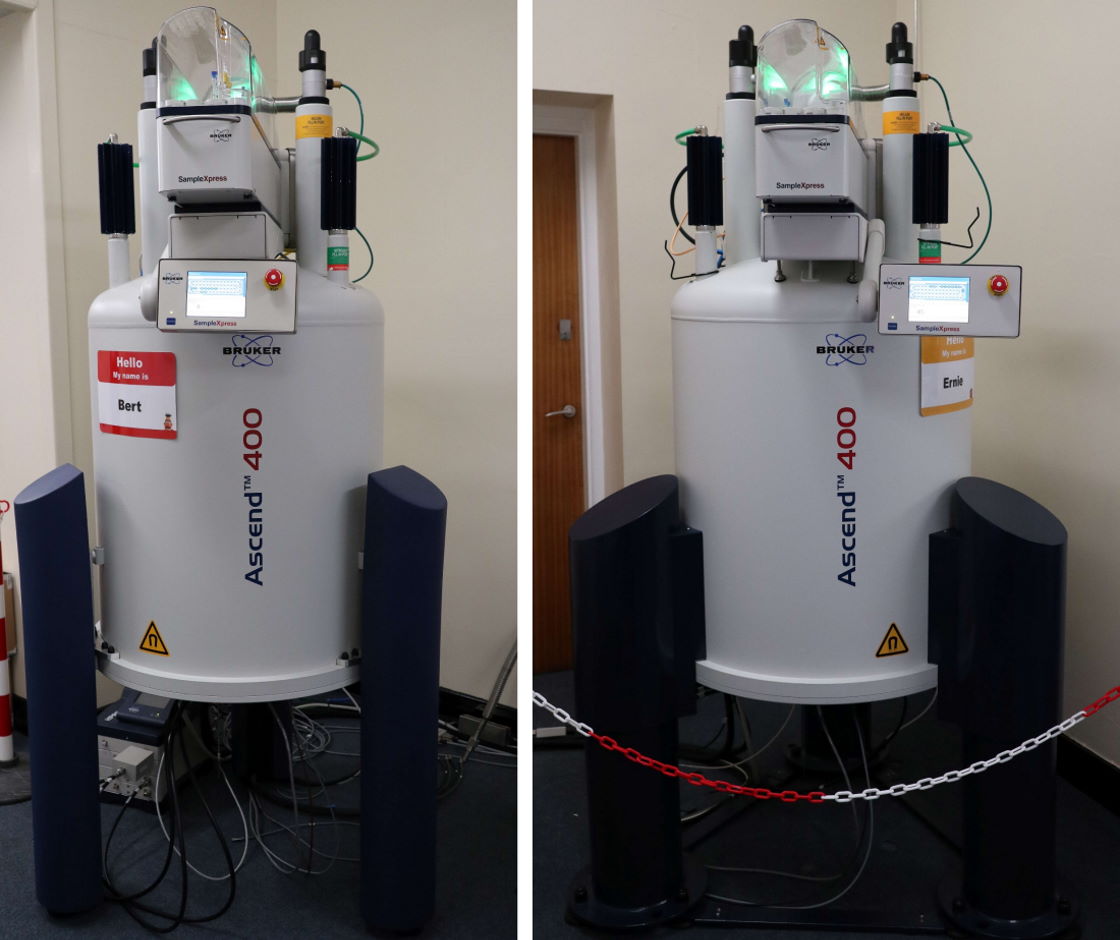 Two 400 MHz NMR spectrometers, each with capabilities for solution or solid-state measurements.
Two 400 MHz NMR spectrometers, each with capabilities for solution or solid-state measurements.
Solution state
- 5mm BBFO – Z Gradient probe
- Nuclei range 1H / 19F / 15N – 31P
- Variety of 1D and 2D experiments
- Variable temperature range: -50 °C to +150 °C
- Sample Xpress High-throughput 60 position sample changer
Solid state
- 2.5mm TriGamma MAS Probe 1H / X / Y
- MAS rates up to 35 kHz
- X channel 50 – 70 kHz / 13C – 31P
- Y channel 40 – 50 kHz / 15N – 23Na
- Variable temperature range: -50 °C to +80 °C
Contact person: Dr Sian Woodfine (s.e.woodfine1@keele.ac.uk)
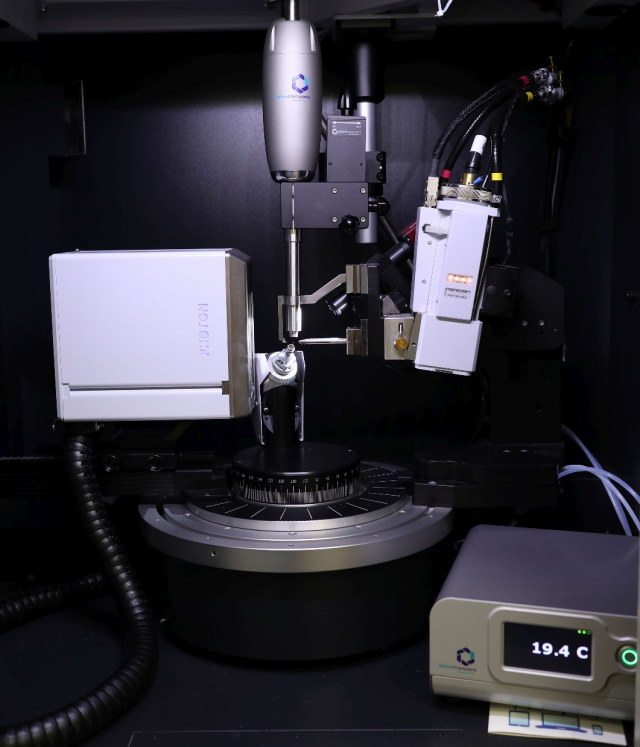 Key features
Key features
- Mo Kα (0.71073 Å) X-ray source
- Photon II C14 Pixel Array Detector
- Oxford Cryostream 800 for temperature control in the range 80-400 K
Sample capabilities
- Suitable for single crystals of organic or inorganic substances with minimum dimension ca. 20 µm
- Samples can be mounted using magnetic cryoloops, glass fibres or capillaries
- Full data processing (solution and refinement to publication quality) can be performed as a service or raw data provided
Contact person: Dr Chris Hawes (c.s.hawes@keele.ac.uk)
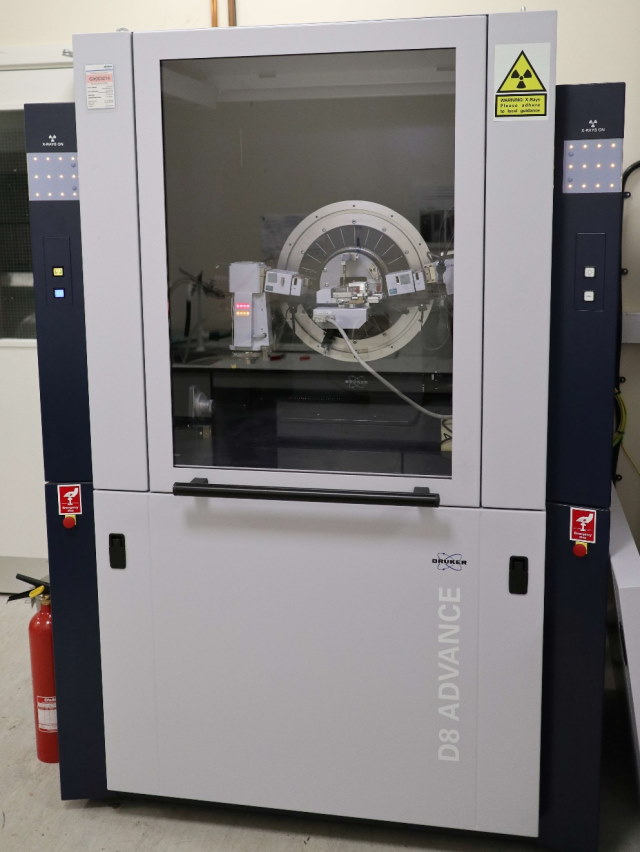
Key features
- Cu Kα (1.54018 Å) X-ray source with LynxEye detector
- Flip-stick multi sample changer
- Can be fitted with capillary sample holder for small quantities or air-sensitive samples
Sample capabilities
- Suitable for powder samples for phase identification or indexing
- Zero-background sample holder, borosilicate or quartz microcapillaries available
Contact person: Dr Sian Woodfine (s.e.woodfine1@keele.ac.uk)
Key features
- 1260 Infinity II Preparative Binary Pump. Flow rate up to 50 mL/min for analytical and preparative scale purifications and separations
- Autosampler
- 1260 Infinity II Variable Wavelength Detector
- ELSD Detector
- Integrated mass spectrometer for LC-MS Sample Capabilities
Sample capabilities
- 5-100mg scales
- Reverse phase, normal phase, monolithic columns
- All integrated through Agilent OpenLab ChemStation
Contact person: Professor Gavin Miller (g.j.miller@keele.ac.uk)
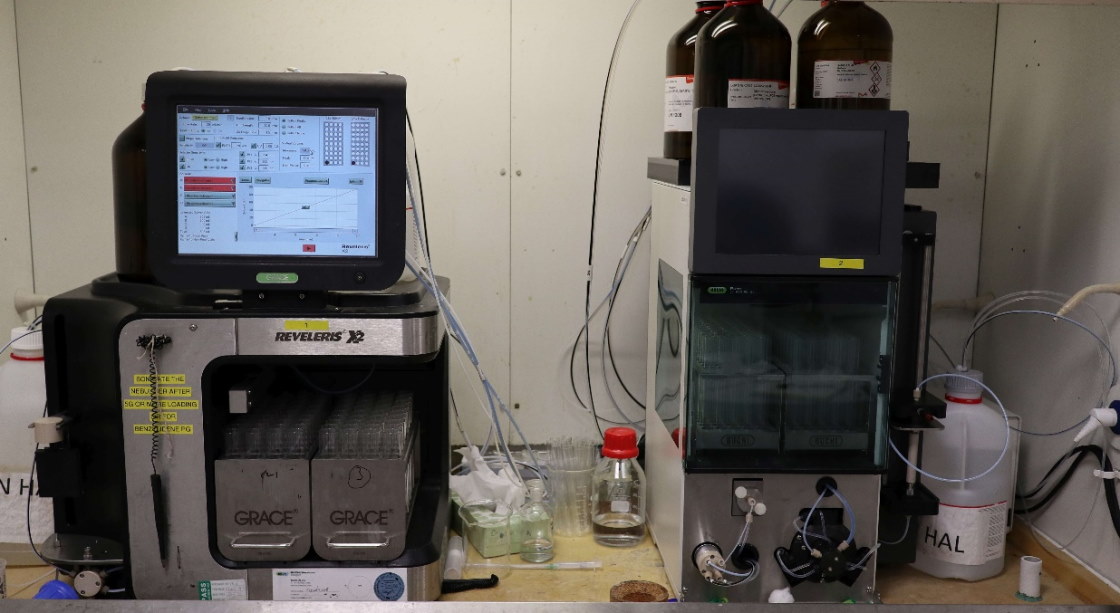
Key features
- 2 Machines: Reveleris X2 and Buchi Pure C-815 Flash
- 250 mL/min flow rate at max. 50 bar
- 4 independent solvent lines
- Binary, linear, step and isocratic gradients
- Dual ELSD detection for non-chromophoric compounds and UV 200 - 800 nm detector
- Fully automated
Sample capabilities
- Suitable for mg to >100g automated chromatographic purifications
- Normal and reverse phase columns
Contact person: Professor Gavin Miller (g.j.miller@keele.ac.uk)
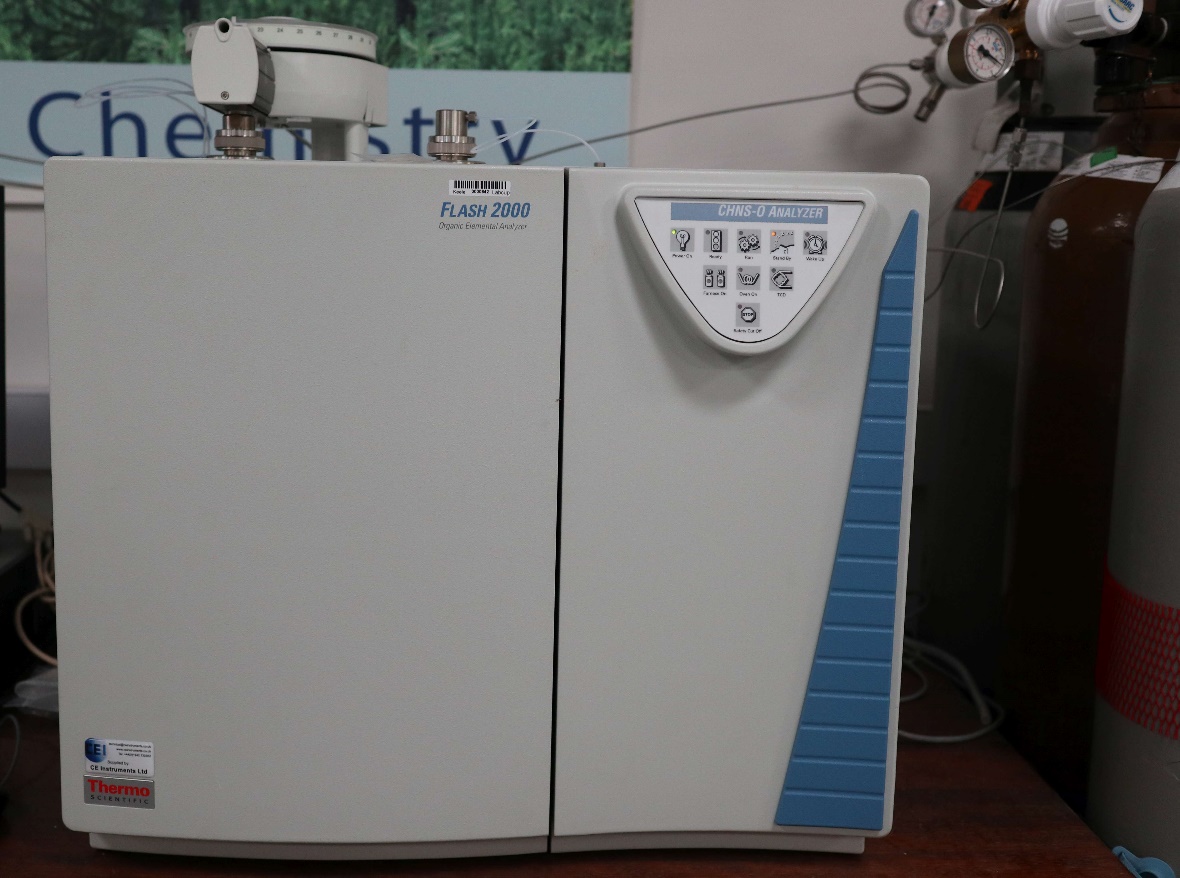
Key features
- Simultaneous determination of carbon, hydrogen, nitrogen and sulfur in solid samples
- 30 sample autosampler
- Dedicated analytical balance (0.01 mg readability) for sample preparation
Sample capabilities
- Each measurement is performed on 1-2 mg of solid
- Organic or inorganic samples
- Reference standards for high or low carbon content available with vanadium pentoxide combustion aid
Contact person: Dr Chris Hawes (c.s.hawes@keele.ac.uk)
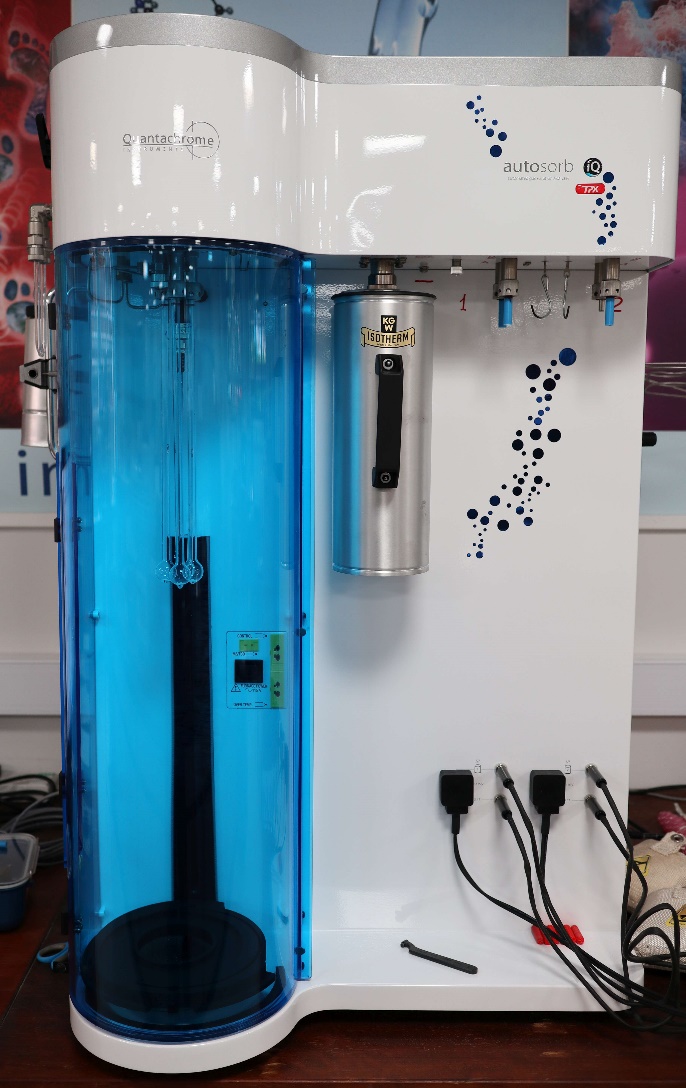 Key features
Key features
- Three independent analysis ports with 1000, 10 and 0.1 torr transducers
- Physisorption, chemisorption and vapour adsorption capabilities
- Six probe gas inlets
- Four sample preparation stations with activation temperatures up to 400 °C
Sample capabilities
- Three analysis temperature control options (dewar, water recirculator or furnace)
- Control and analysis software for BET surface area, DFT pore size distribution and enthalpy
- of adsorption calculations
- Temperature programmed desorption (TPD) chemisorption measurements
- Typical sample size ca. 20-50 mg
Contact person: Dr Vladimir Zholobenko (v.l.zholobenko@keele.ac.uk)
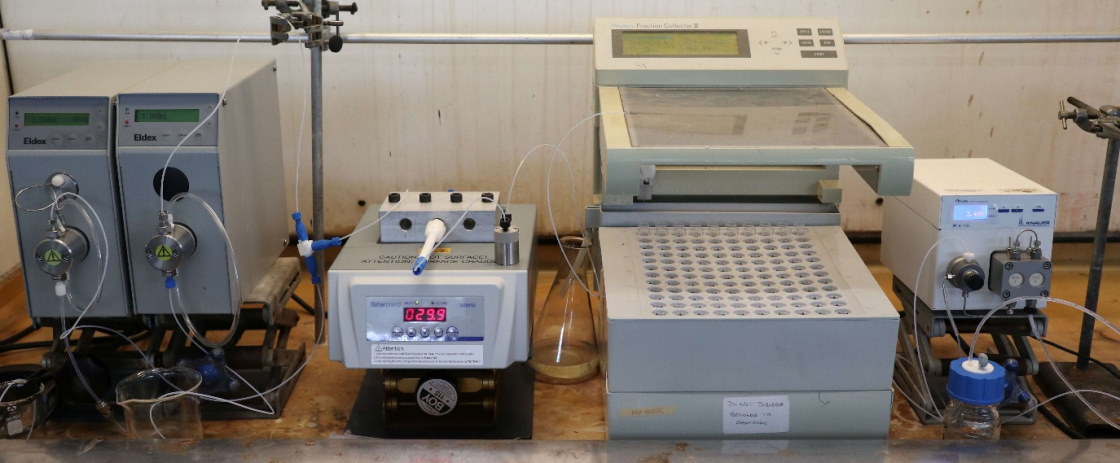
The Keele flow laboratory houses state of the art pumps that allow a range of flow conditions including packed-bed reactors, liquid-phase reactors and multi-phase (gas/liquid) reactors.
Specific equipment includes:
- Eldex Optos 1SM series pumps (Flow rate 0.003 – 5 mL min-1)
- Knauer AZURA P 4.1S pumps with pressure sensor (Flow rate 0.001 – 10 mL min-1)
- Waters fraction collector
- Gilson FC203 fraction collector
- Fisherbrand Digital Dry Baths with customised column heating blocks
- Omnifit columns (up to 15 mL internal volume)
Contact person: Dr Matt O’Brien (m.obrien@keele.ac.uk) or Dr Sebastian Cosgrove (s.cosgrove@keele.ac.uk)
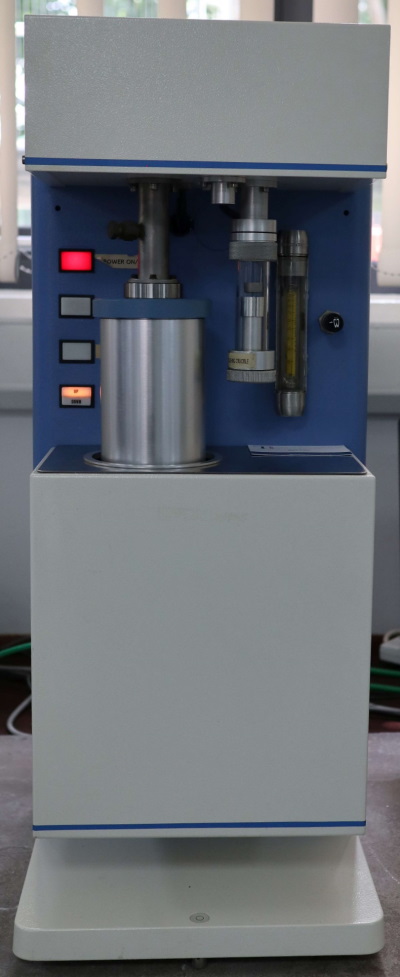 Key features
Key features
- Simultaneous thermogravimetric analysis and differential thermal analysis
- Ambient temperature to 1200 °C
- Programmable temperature ramp and dwell cycles
Sample capabilities
- Suitable for samples 1-10 mg
- N2, O2 or air atmospheres
Contact person: Dr Vladimir Zholobenko (v.l.zholobenko@keele.ac.uk)
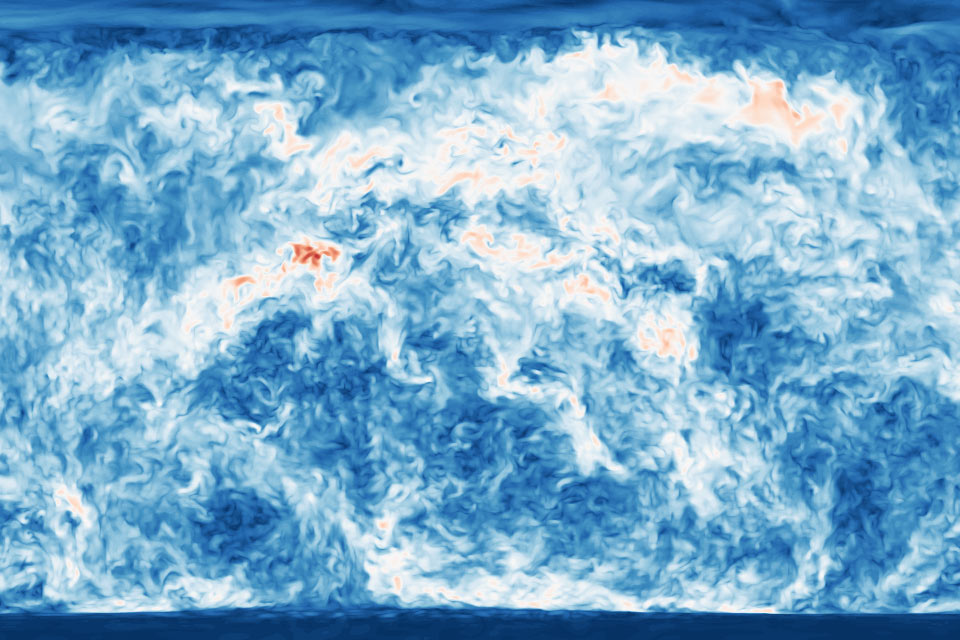
Above: Example of computer simulations undertaken by the Astrophysics group. Vertical crosssection of the turbulent flow inside a star where carbon fusion at the bottom of the image makes the plasma buoyant and drives turbulence. The colour indicates the speed of the plasma (credit: R. Hirschi).
Key features
- Mixture of CPU and GPU (P100) architecture comprising a total of several hundred CPU cores
- Several hundred TBs of data storage
Contact person: Professor Raphael Hirchi (r.hirschi@keele.ac.uk) or Dr Barry Smalley (b.smalley@keele.ac.uk)
School address
Lennard-Jones School of Chemical and Physical Sciences
Lennard-Jones Building
Keele University
Staffordshire
ST5 5BG, UK
Phone (School Office): +44 (0)1782 733033, (Chemistry): +44 (0)1782 731693, (Forensic Science): +44 (0)1782 731694, (Physics): +44 (0)1782 733527
Email: scps@keele.ac.uk
Information for schools and colleges
Programme directors
Chemistry and Medicinal Chemistry
Dr Tess Phillips
Tel : +44 (0)1782 733038
Email : t.r.phillips@keele.ac.uk
Dr Chris Hawes
Tel : +44 (0)1782 732820
Email : c.s.hawes@keele.ac.uk
Forensic Science
Dr Jamie K. Pringle
Tel : +44 (0)1782 733163
Email : j.k.pringle@keele.ac.uk
Physics and Astrophysics
Dr Barry Smalley and Dr Joana Oliveira
Email : b.smalley@keele.ac.uk, j.oliveira@keele.ac.uk
Admission tutors
Chemistry and Medicinal Chemistry
Dr Natalie Capel
Tel : +44 (0)1782 733584
Email : n.j.capel@keele.ac.uk
Forensic Science
Dr Natalie Capel
Tel : +44 (0)1782 733584
Email : n.j.capel@keele.ac.uk
Physics and Astrophysics
Dr Juliana Morbec
Email : physics@keele.ac.uk or j.morbec@keele.ac.uk


